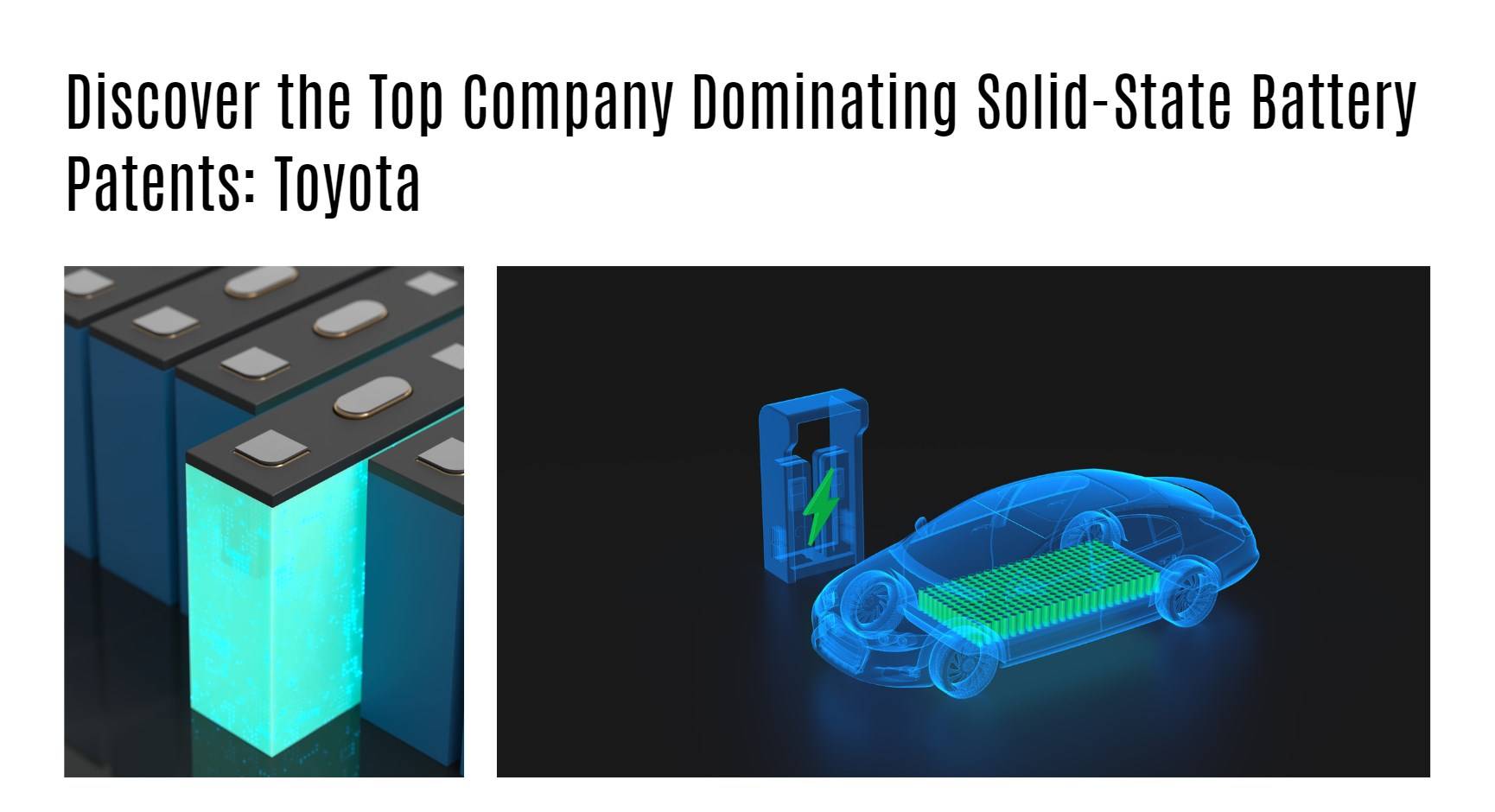Toyota has emerged as a leader in solid-state battery technology, holding the largest number of patents in this innovative field. This advancement positions Toyota at the forefront of the electric vehicle (EV) market, promising significant improvements in battery performance and safety. This article delves into the key players, innovations, and future trends shaping solid-state battery technology.
What is the current landscape of solid-state battery technology?
Solid-state batteries represent a significant advancement over traditional lithium-ion batteries, utilizing a solid electrolyte instead of a liquid one. This change enhances safety by reducing the risk of leaks and fires, while also improving energy density and charging times. As of 2024, many major automotive manufacturers are investing heavily in solid-state technology, with Toyota leading the charge.Current Landscape Overview Chart
| Aspect | Description |
|---|---|
| Technology Type | Solid-state batteries |
| Safety Features | Reduced risk of fire and leakage |
| Energy Density | Higher than traditional lithium-ion batteries |
Who are the top players in solid-state battery manufacturing?
Several companies are recognized as leaders in the solid-state battery market:
- Toyota: Holds over 8,000 patents related to solid-state battery technology.
- Established: 1937
- Headquarters: Toyota City, Japan
- LG Chem: A major player providing advanced battery solutions.
- Established: 1947
- Headquarters: Seoul, South Korea
- Samsung SDI: Focuses on developing next-generation battery technologies.
- Established: 1970
- Headquarters: Suwon, South Korea
- QuantumScape: A startup focused exclusively on solid-state battery development.
- Established: 2010
- Headquarters: San Jose, California, USA
- Solid Power: Collaborates with major automakers to develop solid-state batteries.
- Established: 2012
- Headquarters: Louisville, Colorado, USA
Top Players Chart
| Manufacturer | Established | Key Products |
|---|---|---|
| Toyota | 1937 | Solid-state batteries |
| LG Chem | 1947 | Advanced battery solutions |
| Samsung SDI | 1970 | Next-generation batteries |
| QuantumScape | 2010 | Solid-state battery technology |
| Solid Power | 2012 | Collaborations for solid-state development |
What innovations are driving the solid-state battery industry?
Key innovations in the solid-state battery sector include:
- Improved Electrolyte Materials: Research into sulfide and ceramic electrolytes enhances conductivity and safety.
- Manufacturing Techniques: Advances in production methods aim to reduce costs and improve scalability.
- Battery Management Systems (BMS): Enhanced BMS technologies optimize performance and longevity of batteries.
- Integration with Renewable Energy Sources: Innovations that allow for better integration with solar and wind energy systems.
Innovations Overview Chart
| Innovation | Description |
|---|---|
| Electrolyte Materials | New materials for better conductivity |
| Manufacturing Techniques | Cost-effective production methods |
| Enhanced BMS | Improved performance monitoring |
| Renewable Integration | Better synergy with renewable energy sources |
How does solid-state battery technology impact electric vehicles?
Solid-state batteries have the potential to revolutionize electric vehicles by offering:
- Increased Range: Higher energy density allows for longer driving distances.
- Faster Charging Times: Reduced charging times enhance user convenience.
- Improved Safety: Lower risk of fire hazards makes EVs safer for consumers.
These advantages position solid-state batteries as a key technology for future electric vehicles.
What future trends should consumers watch for in battery development?
Consumers should be aware of several emerging trends that will influence their choices:
- Sustainability Initiatives: Increasing focus on eco-friendly practices will shape product offerings.
- Technological Advancements: Continuous improvements in solid-state technology could lead to widespread adoption within a few years.
- Regulatory Changes: Policies promoting clean energy will likely drive demand for advanced battery technologies.
Buy Wholesale Battery Tips
For businesses looking to source high-quality LFP batteries through OEM channels, Redway Battery is an excellent choice for wholesale buyers. With over 13 years of experience, Redway provides tailored products that meet specific client needs. To place an OEM order, contact Redway Battery directly through their website or customer service team to discuss your requirements. Their commitment to quality makes them a reliable partner for companies seeking alternatives to lead-acid batteries.
Industrial News
Recent developments indicate a significant increase in demand for advanced solid-state batteries due to their application in electric vehicles and renewable energy systems. Major manufacturers are investing heavily in research and development to enhance performance while focusing on sustainable production practices that align with global environmental goals.
Redway Expert Views
“Toyota’s advancements in solid-state batteries could redefine the EV landscape,” states a Redway Battery expert. “As more companies invest in this technology, we can expect significant improvements in performance and safety.”
FAQ Section
- What is a solid-state battery?
A solid-state battery uses a solid electrolyte instead of a liquid one, enhancing safety and energy density. - Who leads the market in solid-state battery patents?
Toyota holds over 8,000 patents related to solid-state batteries, making it a leader in this field. - What advantages do solid-state batteries offer?
They provide increased range, faster charging times, and improved safety compared to traditional lithium-ion batteries. - How soon can we expect widespread adoption of solid-state batteries?
While many companies are working on this technology, mass production is expected around 2027 or later.



